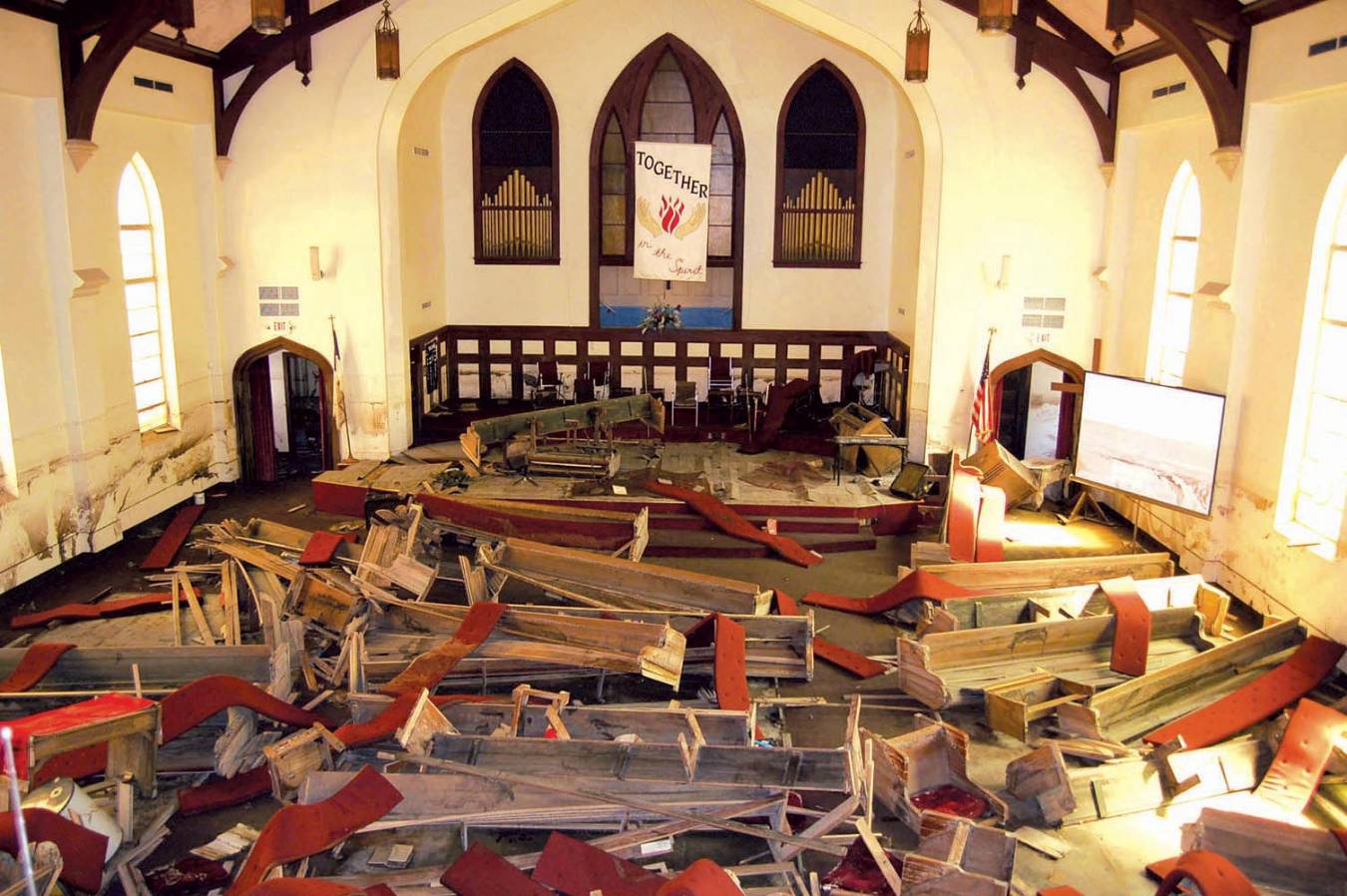By Joe McKeever
NEW ORLEANS – From the divine perspective, 10 years is a blip, one nanosecond in a timeless eternity. For us earthlings, it’s one-eighth of a life expectancy.
Even so, it’s a convenient time to pull over and take inventory. Since Aug. 29, 2005, when Hurricane Katrina changed New Orleans forever, everyone wants to know: “What is God doing in this city? How are things now?”
For one day, New Orleanians thought they had “dodged a bullet” as the hurricane’s primary damage lay to the east, along the Mississippi coastline where entire communities were destroyed.
Then, the levees protecting this sunken city broke under the strain in several places. Soon this great city was literally drowning.
One million residents were evacuated voluntarily or otherwise from the hurricane’s onslaught. Over 1,800 who refused to leave were drowned in their homes. Entire neighborhoods ceased to exist. Several church buildings would never be found.
And now?
Almost anything you say about New Orleans at this moment would be correct to some extent.
The city is better off in places.
The old housing projects, breeding grounds for crime and human misery, have been razed and multi-income-level housing erected in their place. Columbia Parc, an amazingly beautiful array of nearly 700 apartments, stands where St. Bernard Housing Development once stood. The landscaping is impressive, the architecture is award-winning, the interiors are luxurious.
The levees have been raised five feet, and a king’s ransom has been invested in new pumping stations to keep the city from flooding in the future. Neighborhoods such as Lakeview are seeing new construction on every block, with the price of lots skyrocketing.
The city is worse off in places
Columbia Parc, however, appears as an island paradise. Nearby, large vacant areas indicate where houses were destroyed and nothing built in their place. Alongside Interstate 10 east, block after block of nothing indicates missing shopping centers.
The Lower Ninth Ward appears snaggle-toothed from the occasional home rebuilt, surrounded by a weedy emptiness.
Drive through Gentilly, not far from New Orleans Baptist Theological Seminary, and you will see an odd mixture of lovely new homes, old homes that have been rebuilt and elevated, and vacant lots.
The city is unchanged in places
Crime still leads the nightly news. Politicians still try to enrich themselves at the expense of the taxpayer and to the shame of the electorate. Two political leaders in post-Katrina life, New Orleans Mayor C. Ray Nagin and Jefferson Parish President Aaron Broussard, were convicted of corruption in separate circumstances and sent to prison. The NOPD keeps rotating superintendents in search of someone who can weed out the corruption from within and safeguard the city.
The city’s population is down 75,000 from 10 years ago while the larger metro area is at pre-Katrina levels. African American numbers are slightly down; the Hispanic population has increased dramatically.
The best news of all: God is at work on every block
When the living God undertakes something everlasting, He loves to start small, use unexpected means, and take His own good time, thus much that He is doing today will be known only in eternity.
Over the last decade, the Lord has shuttered many churches and given new life to others. After Katrina, seniors whose children lived elsewhere moved away from the hurricane zone.
In their place came large numbers of young professionals who love this city and are planting their lives here. Many churches are filled with young adults and growing families. The unity in these congregation tends to be a pastor’s dream.
Jack Hunter, executive director of the New Orleans Baptist Association, leads an aggressive program of church planting and ministry. A community health outreach has been established in the Ninth Ward, staffed with a medical team called by God and supported by our churches.
Startup churches are being sponsored by multiple churches around the country, replacing the former system of one mother church birthing one mission.
Baptists are still hailed as heroes by many. Following the storm, churches from across the country sent hundreds of mission teams to rebuild this city. Fresh-faced teens and collegians blanketed the city, sharing the love of Christ. Friendly seniors went from door-to-door offering kindness, supplies and a paint brush.
A typical comment was voiced recently: “When we evacuated, we were taken in by Baptists in Texas. And when we returned home, the Baptists were painting our house. We love the Baptists!”
The work goes on
Throughout this 10th summer, God’s churches continue to send teams to share the Gospel and bless our people. The seminary’s MissionLab and churches like Oak Park, Williams Boulevard and Gentilly host a relentless stream of mission teams who travel here to serve people in Jesus’ name.
Chuck Kelley, our seminary president, used to say, “The churches of New Orleans want to reap a harvest in a field they have not sown.” Since Katrina, he says, “No city on earth has been so thoroughly sown with the Gospel as New Orleans.” We are praying for the promised harvest.
We are eternally grateful to all who have ministered to us, who still believe God with us for revival, who pray for New Orleans, and who continue coming to share His love.
Joe McKeever is the former director of missions for the New Orleans Baptist Association and former pastor of First Baptist Church in Kenner, La.




